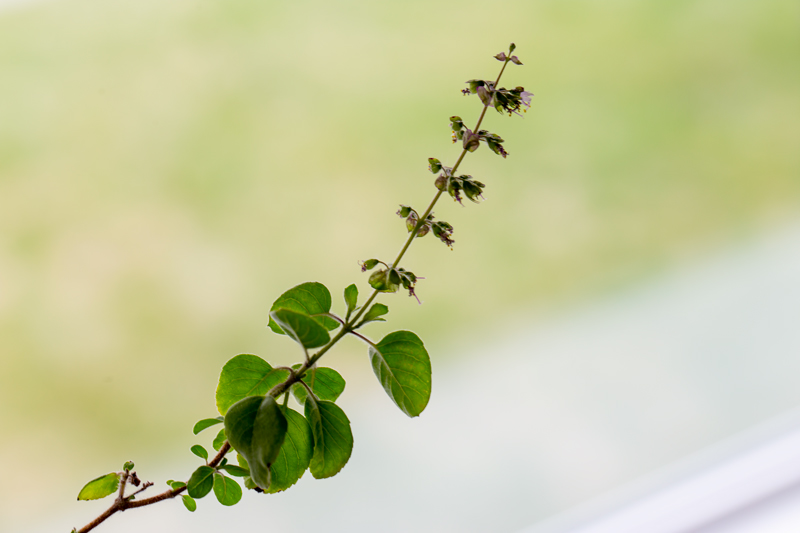What is Tulsi Holy Basil And Benefits And How To Steep Tulsi Tea?
Posted by Sameer Pruthee on 23rd Jul 2023
Tulsi tea (Ocimum sanctum) also known as Holy Basil, is often considered the Queen of Herbs. Widely used in Ayurvedic medicine, Tulsi is considered to have a multitude of physical and spiritual benefits. Grown mainly in Northern parts of India, Tulsi grows in three varieties.

Rama (Ocimum sanctum),
Vana (Ocimum gratissimum)
Krishna (Ocimum sanctum)
Each Tulsi type is different in physical and taste profiles. Krishna is the most recognizable variety, easily found or grown.
Hinduism holds a very special place for tulsi spiritually, and its presence is common in many homes. It is believed to encourage positive energy, and prayers are performed to Tulsi.
Following Ayurvedic believes, Tulsi supports stress relief, boosts immunity, helps regulate blood sugar, life balance and harmony.
At Vedic Teas, we offer Tulsi Trio, a blend of all three varieties. Ram, Vana and Krishna are available as a mono herb.
Tulsi Tea Side Effects
People widely celebrate Tulsi for its adaptogenic and wellness-supporting properties. However, like many herbs, it may cause side effects in some individuals. Potential side effects can include nausea, diarrhea, or an upset stomach when taken in large amounts.
Preparing Tulsi Using Dried Leaves
1 1/2 – 2 tsp per 300ml cup, 5 -10 minutes steeping.
It is not recommended to add milk to any Tulsi blends.


